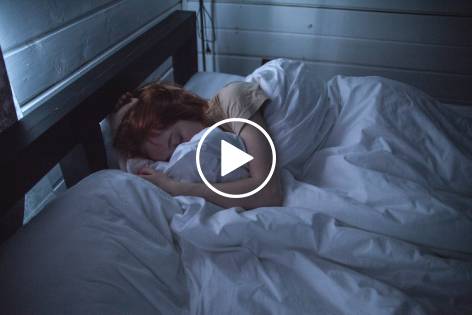
LMU 158 – Sleep: Your Silent Immune Superpower
Source: European Journal of Physiology (2012)
Lifestyle Medicine Update (April 11, 2020)
Introduction:
In the realm of immune health, we often focus on diet, exercise, and supplements, but there’s a silent hero lurking in the shadows – sleep. This Lifestyle Medicine Update shines a light on the pivotal role that regular, quality sleep plays in fortifying your immune system. It’s a facet often underestimated but backed by a wealth of scientific evidence. So, let’s dive into the fascinating world of sleep and its profound impact on immune function.
Section 1: Sleep Deprivation: The Immunity Saboteur
Sleep deprivation, or as experts term it, “sleep curtailment,” is no friend to your immune system. A comprehensive review published in the European Journal of Physiology paints a clear picture – chronic sleep loss sets the stage for chronic low-grade inflammation and immunodeficiency, essentially weakening your immune system.
Section 2: The Evidence Unveiled
The review paper pulls back the curtain on an array of studies that demonstrate the consequences of chronic sleep deprivation. For starters, it dampens the body’s production of antibodies after receiving a flu vaccine, leaving you less protected against the virus. Additionally, it elevates the risk of falling victim to the common cold, caused by various viruses such as rhinoviruses and coronaviruses. Animal studies have reinforced these findings, showing that sleep-deprived creatures struggle to fend off experimental viral infections.
Section 3: The Nightly Transformation: Sleep and Hormonal Harmony
So, what’s the magic behind sleep’s immune-boosting prowess? When you drift into slumber, a remarkable transformation unfolds. Cortisol, adrenaline, and noradrenaline levels take a dip, while growth hormone, prolactin, and melatonin surge. This hormonal symphony signals many T-lymphocytes, your immune system’s foot soldiers, to exit the bone marrow, their place of origin, and roam the body. These T-lymphocytes, often taking up residence in lymph glands and other immune tissues, await their cue.
Section 4: Unveiling the Immune Ballet
Here’s where the immune ballet begins. Within your lymph tissue, antigen-presenting immune cells like macrophages, dendritic cells, and neutrophils spot foreign invaders like viruses. They engulf the intruders and display their spiky extensions on their surface. These antigen-presenting cells then bring this valuable information to the T-lymphocytes patiently waiting in the lymph glands. Once presented with the viral antigen, the T-lymphocytes spring into action, launching a full-scale attack against the invaders.
This coordinated response, known as adaptive immunity, is a linchpin in fending off viral and other infections. It enables your body to produce antibodies that annihilate viruses and retain a memory of the threat for future encounters. In essence, your immune system holds the blueprint for swift antibody production against specific viruses or bacteria, should they reappear. T-lymphocytes orchestrate this intricate defence mechanism.
Section 5: Sleep’s Vital Role in Immune Vigilance
Here’s where the spotlight returns to sleep. The most effective way to keep your T-lymphocytes battle-ready is through regular, restorative sleep. While proper nutrition, moderate exercise, and select supplements play their roles, prioritizing your sleep-wake cycle should be high on your list. Quality sleep ensures that your immune system, including T-lymphocytes, remains in peak condition to combat infectious agents, whether viruses, bacteria, or fungi. And remember, a robust immune system is not only crucial for fighting infections but also for preventing cancer.
Conclusion: Sleep, Your Immunity’s Best Friend
In the pursuit of a resilient immune system, don’t overlook the potent influence of sleep. It’s your body’s hidden superpower, fortifying your defences and arming your T-lymphocytes for battle. So, embrace the power of a good night’s sleep, and let your immune system flourish as your guardian against infections and diseases.
References:
- Besedovsky L, Lange T, Born J. Sleep and immune function. European Journal of Physiology (2012) 463:121-137. [Link](https://www.ncbi.nlm.nih.gov/pmc/articles/PMC3256323/)
Dr. Meschino

Dr. James Meschino
ABOUT THE AUTHOR
Dr. James Meschino, DC, MS, ROHP, is an educator, author, and researcher having lectured to thousands of healthcare professionals across North America. He holds a Master’s Degree in Science with specialties in human nutrition and biology and is recognized as an expert in the field of nutrition, anti-aging, fitness, and wellness as well as the author of numerous books.


